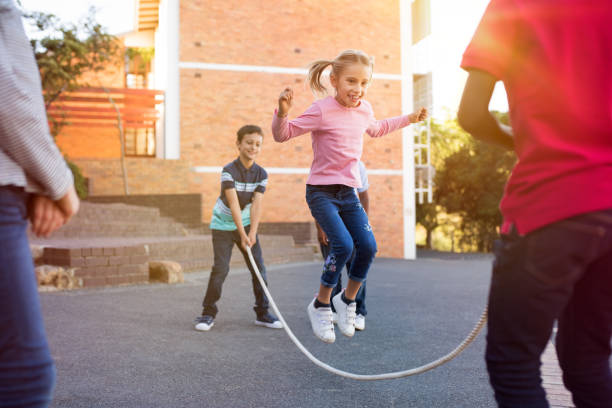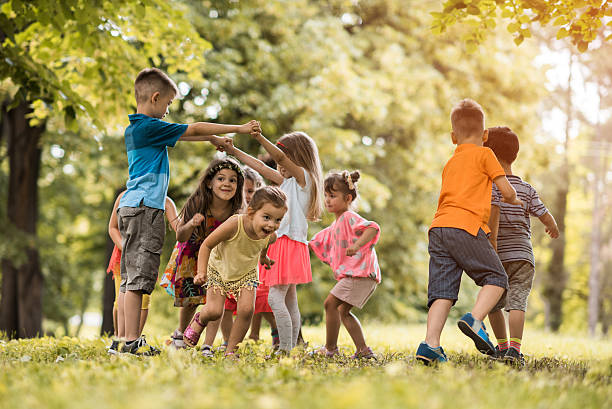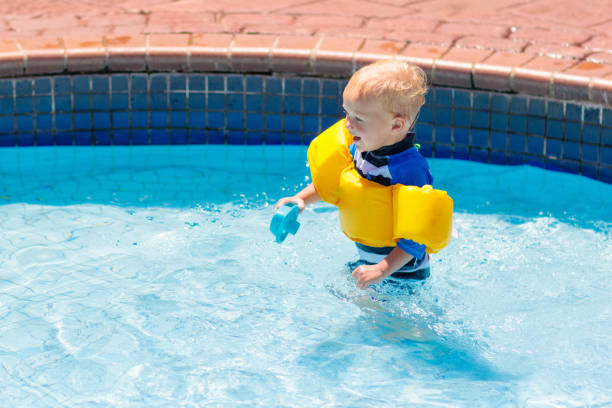Why Outdoor Games Are Good Kids
This post contains affiliate links. I may earn a commission at no extra cost to you if you make a purchase. Note that I’m not a health or outdoor safety professional, so further research is advised. Your support keeps Outdoors A-Z running—thank you! Read the full disclosure.. Read the full disclosure here.
In an era dominated by screens and technology, the importance of outdoor activities for kids has become more significant than ever. Beyond mere play, outdoor games offer a myriad of benefits for children’s physical, mental, and social development. In this article, we’ll explore why outdoor games are not just fun but essential for the well-rounded growth of kids.
Table of Contents
Physical Health Benefits
Children are naturally full of energy, and outdoor games provide a perfect outlet for this vitality. Running, jumping, climbing, and playing various sports contribute to improved physical health. From developing gross motor skills to enhancing cardiovascular fitness, outdoor activities lay the foundation for a healthy and active lifestyle.

Mental Health and Well-being
The connection between outdoor games and mental well-being in children is profound. Engaging in outdoor play has been linked to reduced stress levels, improved mood, and enhanced concentration. The open air and sunshine create an environment conducive to mental relaxation and emotional well-being.
Social Skills Development
Outdoor games provide a platform for children to interact, collaborate, and develop crucial social skills. Whether it’s a game of tag, team sports, or imaginative play, children learn the importance of teamwork, communication, and cooperation in a playful context, setting the stage for positive social interactions in the future.
Cognitive Benefits

Outdoor play stimulates cognitive development in various ways. Activities that involve problem-solving, creativity, and critical thinking contribute to the overall cognitive advancement of children. Exploring nature, identifying plants and animals, and engaging in imaginative play all contribute to a child’s intellectual growth.
Immersion in Nature
Exposure to nature is vital for children’s holistic development. Outdoor games provide a direct connection to the natural world, fostering a sense of appreciation for the environment. The sights, sounds, and textures of nature enhance sensory experiences and contribute to overall well-being.
Screen Time Reduction
In a world dominated by screens, outdoor games offer a healthy alternative to excessive screen time. Encouraging kids to play outdoors not only promotes physical activity but also reduces the sedentary habits associated with prolonged screen exposure.
Building Confidence and Independence
Outdoor play instills a sense of confidence and independence in children. Overcoming physical challenges, trying new activities, and navigating outdoor spaces contribute to a child’s self-assurance and resilience.
Creating Lasting Childhood Memories

Many adults fondly recall outdoor games and adventures from their childhood. These experiences create lasting memories that contribute to a sense of identity and nostalgia. Positive outdoor experiences lay the foundation for a lifelong love of nature and physical activity.
Overcoming Challenges and Adversity
Outdoor games provide a safe space for children to encounter challenges and adversity. Whether it’s conquering a climbing wall or navigating an obstacle course, overcoming these challenges teaches resilience, perseverance, and the value of effort in achieving goals.
Incorporating Outdoor Games into Daily Routine
Parents play a crucial role in promoting outdoor play. Simple adjustments to daily routines, such as allocating dedicated outdoor playtime, can make a significant impact. From backyard play to neighborhood adventures, incorporating outdoor games into daily life is achievable and rewarding.
Addressing Safety Concerns
Parents often express concerns about the safety of outdoor play. Addressing these concerns involves creating a supervised outdoor environment, setting clear boundaries, and educating children about potential risks. Balancing safety measures with the benefits of outdoor play is essential for a positive experience.
Balancing Structured and Unstructured Play
Both structured and unstructured outdoor play have their benefits. While organized sports offer guidance and skill development, unstructured play fosters creativity and imagination. Striking a balance between these two forms of play ensures a well-rounded outdoor experience for children.
Overcoming Technology Distractions
Technology distractions pose a challenge to outdoor play. Encouraging a healthy balance involves setting screen time limits, providing enticing outdoor activities, and engaging in technology-free family moments. Creating a positive association with outdoor play can help overcome the allure of digital entertainment.
The Role of Parents and Guardians

Parents play a pivotal role in fostering a love for outdoor activities. By actively participating in outdoor games, providing encouragement, and creating a supportive environment, parents contribute significantly to their children’s well-being. The positive influence of engaged parents extends beyond the immediate outdoor play session.
Final Thoughts
In conclusion, the benefits of outdoor games for kids extend far beyond the joy of play. From physical health and mental well-being to social skills development and cognitive growth, outdoor activities are a cornerstone of a child’s holistic development. As parents, educators, and guardians, fostering a love for outdoor play is an investment in the well-rounded growth of the next generation. So, open the door, step outside, and let the games begin!
FAQs
How can I encourage my child to play outdoors if they’re used to indoor activities?
Start by introducing outdoor activities gradually. Find games or activities that align with their interests, and participate with them to make it a fun and positive experience.
Is it safe for children to play outdoors without constant supervision?
While some independence is beneficial, it’s essential to set clear boundaries and educate children about safety. Regular check-ins and age-appropriate supervision ensure a safe outdoor play environment.
How can I balance outdoor play with academic commitments?
Incorporate outdoor play into breaks or after school hours. Studies show that short breaks for physical activity can enhance concentration and academic performance.
What are some outdoor games suitable for different age groups?
Outdoor games can be adapted for various age groups. For younger children, games like tag or nature scavenger hunts work well, while older kids may enjoy sports or more complex activities.
Are there benefits to playing outdoors in different weather conditions?
Yes, playing outdoors in varying weather conditions offers unique experiences. From sunny days to rainy adventures, each weather condition provides opportunities for different types of outdoor play and learning.















